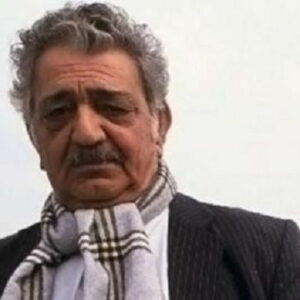Emile Habibi was a Palestinian writer and a communist politician who became one of the most popular authors in the Middle East through his insightful literary works. His works mostly depicted the conflicts in loyalties experienced by Palestinians living as an Arab minority in the Jewish state of Israel. Born in Palestine, he became a communist in the early 1940s when he had not even completed his graduation and later helped in founding the Communist Party of Israel. He served as a member of the parliament and served as the editor of the party’s newspaper for over three decades. Emile Habibi began writing fiction in the 1970s and created plays and short stories in addition to his novels. He was committed to nonviolence and peaceful coexistence between Arabs and Jews. He was one of the major forces in the development of the Arabic novel and provided it with some of its most interesting experimental works. His writings are credited with provoking serious debate among Palestinians within Israel and generating interest and controversy in the Arab world. With the debates raised through his political views, he succeeded in putting the Palestinian question firmly on the literary agenda. Throughout his career he kindled controversies, and the heated discussions generated through his work are testimony to his lasting importance as a prominent literary figure and a symbol of Palestinian identity
Childhood and Adolescence
Emile Habibi was born in Haifa, mandatory Palestine, on August 29, 1922, to a family of Protestant Christian Arabs from the adjacent town of Shafa Amr. He began studying for a London University degree in petroleum engineering by correspondence after completing his early schooling, however he did not complete his studies.
After quitting his studies, Emile Habibi became a news broadcaster for the Palestinian radio station in Jerusalem.
During the early years of his career, he tried his hand at a variety of vocations before deciding to pursue writing professionally. Among other odd occupations, he worked in an oil refinery and as a radio broadcaster.
He got extensively involved in the Palestinian resistance movement against the British mandated administration and, with numerous other Palestinian and Arab authors, joined the Palestine Communist Party (PCP) in 1940. He joined the National Liberation League, which was established out of the PCP, in September 1943. He was named editor-in-chief of the PCP daily ‘Al-Ittihad’ the following year.
He stayed in Haifa during the 1948 Arab-Israeli War, while many others decided to escape or were forced to leave by the Israeli Army. He was awarded Israeli citizenship after the defeat of the Arabs in the war and the foundation of the Israeli regime, and he went on to help found the Israeli Communist Party (ICP).
He began writing short tales in the 1950s, and his debut work, ‘The Mandelbaum Gate,’ was published in 1954. He relocated from Haifa to Nazareth in 1956 and remained there for the remainder of his life. When he was elected to the Knesset, Israel’s parliament, he became actively involved in Israeli politics and remained an outspoken Knesset member from 1953 until 1972.
He continued to represent the ICP in the Knesset in 1965, even though the party was renamed the New Communist List (Rakah). ‘Sudasiyat al-Ayam al-Sitta: Riwaya min al-Ard al-Muhtalla (Stories of the Six Days: A Story from the Occupied Land)’, a collection of short stories released in 1969, centered on life and times in Israel following the 1967 War.
He resigned from the party in 1991 after a disagreement with his fellow members about the party’s attitude to Soviet leader Mikhail Gorbachev’s new reforms. His plays ‘Luka the Son of Luka’ (1979) and ‘The Pedlar Woman’ (1992), as well as the novels ‘Ikhtiyyah’ (1985) and ‘Saraya the Ogre’s Daughter’ (1992), were among his other literary works (1992). He was also instrumental in the founding of Haifa’s ‘Arabesque House Publishing Company,’ as well as the production of the literary periodical ‘al-Masharif.’
Major Projects of Emile Habibi
Emile Habibi’s most renowned work, ‘al-Waqa’i al-Ghariba fi Ikhtifa Sa’id Abi’l-Nahs al-Mutasha’il,’ was published in 1974. (The Secret Life of Saeed the Pessoptimist). It is widely regarded as one of the finest Arabic books, portraying the lives, fortunes, and misfortunes of an Arab living within Israeli boundaries. As a politician, he backed Palestinians who remained in the area after Israel was established on their land. He campaigned to protect their legal, political, and human rights, devoting the most of his active life to the cause.
Achievements & Awards
The Palestine Liberal Organization presented Emile Habibi the ‘Al-Quds Prize’ in 1990. He was awarded the ‘Israel Prize’ in 1992 for his contribution to fostering tolerance and mutual understanding via his literature.
Personal History and Legacy
He has two boys and was married. Emile Habibi died on May 2, 1996, at the age of 74, in Nazareth, Israel. He was then transported from Nazareth to Haifa, where he was born, and buried there.
Estimated Net Worth
Emile is one of the wealthiest politicians and one of the most well-known. Emile Habibi’s net worth is estimated to be over $245 million, according to Wikipedia, Forbes, and Business Insider.


